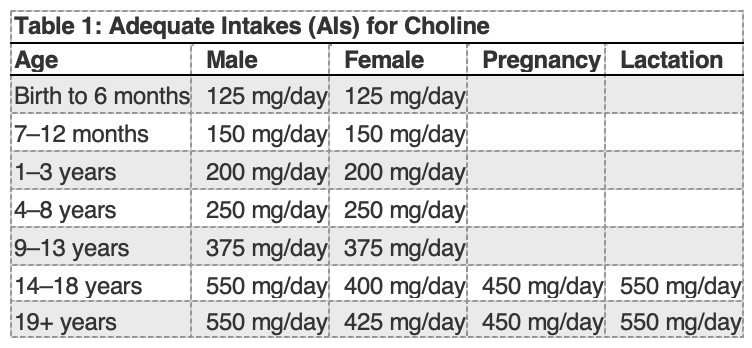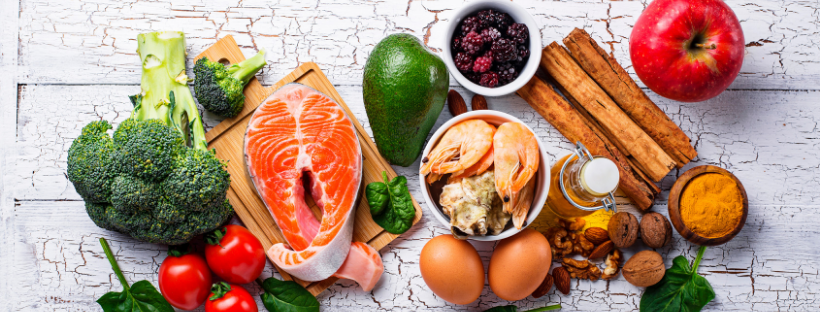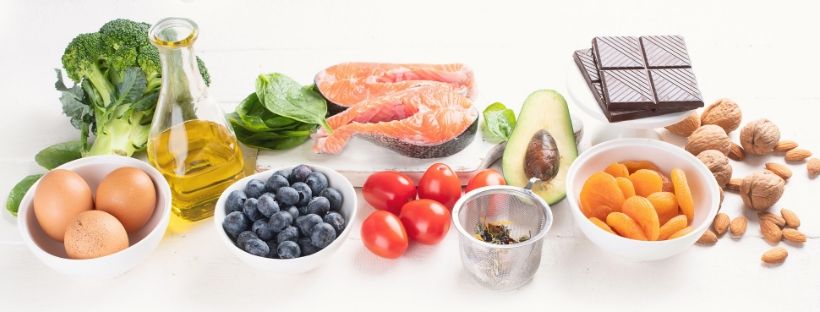
By: Katie Hayes, RDN
WHY IS CHOLINE IMPORTANT?
Choline is an essential nutrient, meaning that we must consume adequate amounts in the diet to achieve optimal health. Unfortunately, most people do not consume enough choline. In fact, more than 90% of Americans (including approximately 90% of pregnant women) fail to meet the adequate intake.1 The Dietary Guidelines Advisory Committee has classified choline as a nutrient that poses special challenges for Americans due to underconsumption and encouraged eggs for pregnant women, as a complementary food for babies and toddlers, and for pre-teens and adolescents.2 Many foods offer choline in small amounts, however, only a few foods are significant choline sources. Furthermore, most multivitamin supplements contain little, if any, choline. Fortunately, eggs are convenient, affordable, accessible, and an excellent source of choline.
Beginning in fetal development, Choline is critical to good health and remains essential throughout the lifespan. This nutrient is important in many ways.
- During pregnancy, choline helps the baby’s brain and spinal cord develop properly and supports brain health throughout life.
- Infants and young children need choline for continued brain development and health.
- Choline is part of a neurotransmitter called acetylcholine, which is important for muscle control, memory and mood.3
- Choline is also important for the support of membranes that surround your cells, the transportation of fats throughout the body and for liver health.
- New research is exploring how choline throughout life may have lasting effects on cognition and prevention of cognitive decline.4
HOW MUCH CHOLINE DO WE NEED?
The amount of choline an individual needs depends on many things, including age, gender and stage of life. Table 1 lists the current Adequate Intakes (AIs) for choline.3

WHAT FOODS HAVE CHOLINE?
People of all ages need adequate choline for good health, but very few consume enough through food and supplements. While many foods contain some choline, only a handful of foods are considered good or excellent sources. Fortunately, two large eggs (about 300mg of choline) contain more than half of the recommended intake for pregnant women and can help them meet their needs. The table below lists food sources of choline.2

CHOLINE & COGNITION
Choline plays a role in early brain development during pregnancy and infancy. There is evidence that infants exposed to higher levels of maternal choline (930 mg/day) during the third trimester have improved information processing speed, an indicator of cognitive function,4,5 during the first year of life.
The American Medical Association (AMA) House of Delegates recommended the addition of choline to prenatal vitamins because of its essentiality in promoting cognitive development of the offspring.6 This recommendation from AMA highlights the increased recognition of choline as a nutrient of concern. The 2015-2020 Dietary Guidelines for Americans (DGAs) also list choline as a nutrient under consumed by most Americans. The DGAs recommend individuals shift to healthier eating patterns to help meet nutrient needs, including choline.7
Interested in more information about choline?
- Read: Choline – The Underconsumed and Underappreciated Essential Nutrient
- Handout: Important Nutrients for Brain Health
- Watch: Brain Health
- Read: Research News – Choline, Lutein, and Cognition
- Watch: Jessica Ivey on WBRC Fox 6 News
- Recipe: Sweet and Savory Breakfast Bowl by Mary Ellen Phipps, RD
- Watch: Mind Your Eggs + Veggies: Nutrition for Cognitive Health webinar
References:
- Wallace TC, Fulgoni VL III. Assessment of total choline intakes in the United States. J Am Coll Nutr 2016, 35(2), 108-112.
- National Institutes of Health. Fact Sheet for Health Professionals: Choline. Version current 26 September 2018. ods.od.nih.gov/factsheets/Choline-HealthProfessional/Accessed June 22, 2020.
- Wallace TC. A comprehensive review of eggs, choline, and lutein on cognition across the life-span. J Am Coll Nutr 2018, 37(4), 269-285.
- Caudill MA, et al. Maternal choline supplementation during the third trimester of pregnancy improves infant information processing speed: a randomized, double-blind, controlled feeding study. FASEB J. 2018;32:2172-2180.
- AMA Wire. AMA backs global health experts in calling infertility a disease. https://wire.ama-assn.org/ama-news/ama-backs-global-health-experts-calling-infertility-disease
- U.S. Department of Health and Human Services and U.S. Department of Agriculture. 2015 – 2020 Dietary Guidelines for Americans. 8th Edition. December 2015. Available at http://health.gov/dietaryguidelines/2015/guidelines/.
Fuel Your Brain with Nutrient-Rich Eggs

By Jessica Ivey, RDN, LDN
The Egg Nutrition Center partnered with Jessica Ivey, RDN, LDN to write this blog post.
June is Alzheimer’s & Brain Awareness Month, making it the perfect time to consider the importance of brain health. With increased concern about brain diseases, researchers in the growing field of neuronutrition are examining how foods affect the health of our brains and scientists working on the 2020 Dietary Guidelines for Americans are evaluating how nutrition impacts neurocognitive health throughout the lifespan. Eggs are a key part of this research because they contain choline and lutein, two nutrients that are important for brain development, memory and learning.
Choline plays a critical role in brain development and health during fetal development and throughout the lifespan. In utero, choline helps the baby’s brain and spinal cord develop properly. Choline is an essential nutrient, meaning that our bodies can’t produce it in sufficient amounts so we have to get it in our diets.
Research News: Choline, Lutein, and Cognition

Featured article in the Spring 2019 Issue of Nutrition Close-Up; written by Maggie Moon, MS, RD
Health is not just the absence of disease, but the presence of optimal wellness. Though nutritional guidance historically focused on preventing deficiency and toxicity from nutrients, today there is a growing interest in leveraging nutrients to improve the “healthspan,” or years of life in good health.
Time is of the essence to apply this to neuronutrition. According to the Alzheimer’s Association, the number of Americans living with Alzheimer’s dementia is expected to more than double by 2050 from today’s 5.7 million to nearly 14 million.1 Worldwide, today’s 50 million people with dementia will more than triple by 2050, according to the World Health Organization.2
Lutein and choline are among the most underconsumed and underappreciated nutrients emerging into the spotlight for brain health and cognition. Recent research highlights their potential
for preventing and improving cognitive decline.
Healthy dietary patterns and brain health in children: the emerging role of lutein

Higher intake of carotenoid-rich vegetables and fruits has been consistently identified as a characteristic of healthy eating patterns. Lutein and zeaxanthin are carotenoids (lipid-soluble pigments) found abundantly in various vegetables such as spinach, kale, squash, peas, and are also present in egg yolks. These yellow carotenoids are selectively taken up by macular tissue of the retina and new research links these pigments to eye health as well as cognition1.
Choline: A Critical Need to Increase Awareness and Consumption

“Choline has been shown to be ranked last among common nutrients as a nutrient to recommend for a healthy diet, and only about 10% of health professionals indicate moderate familiarity with choline.”1 With growing research indicating that this under-consumed nutrient is critical for neurocognitive development and health throughout the lifespan, health professionals should be aware of foods that provide choline and ways to incorporate them into the diet.
